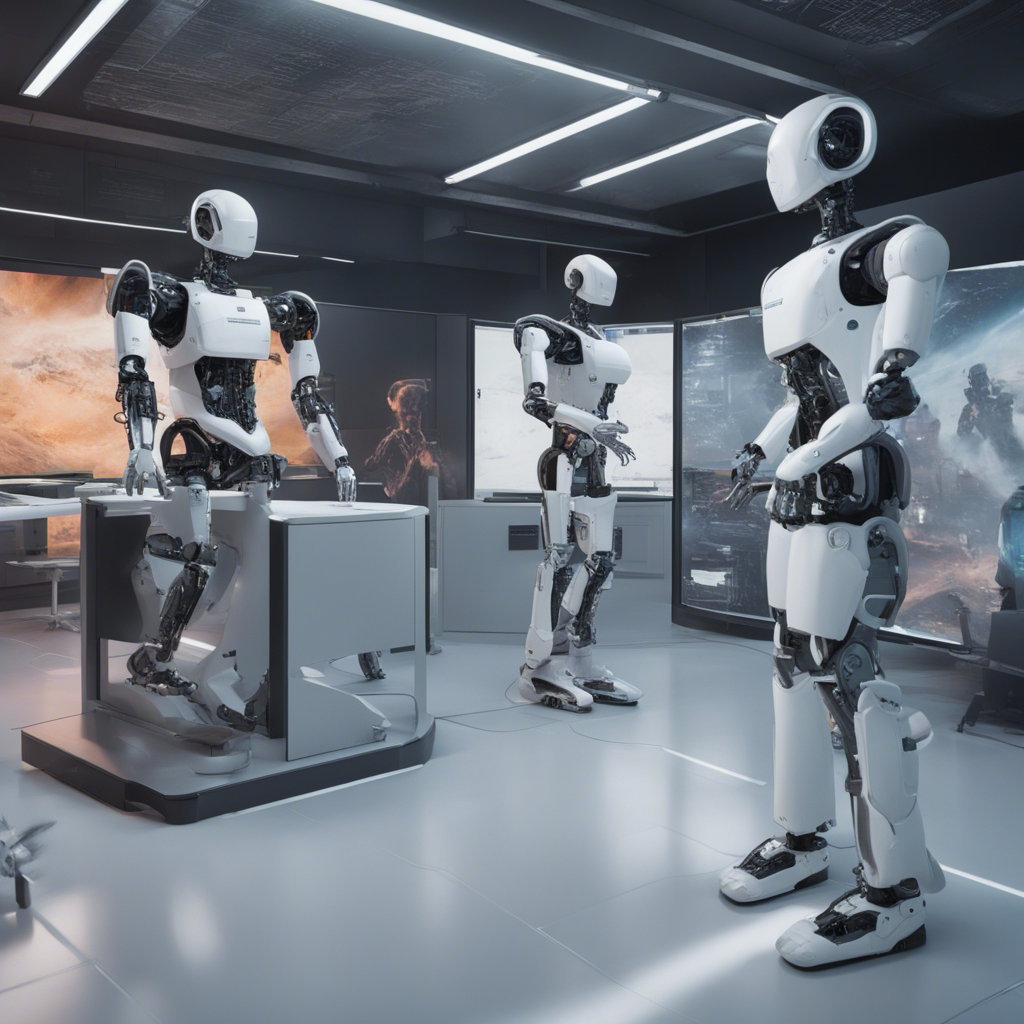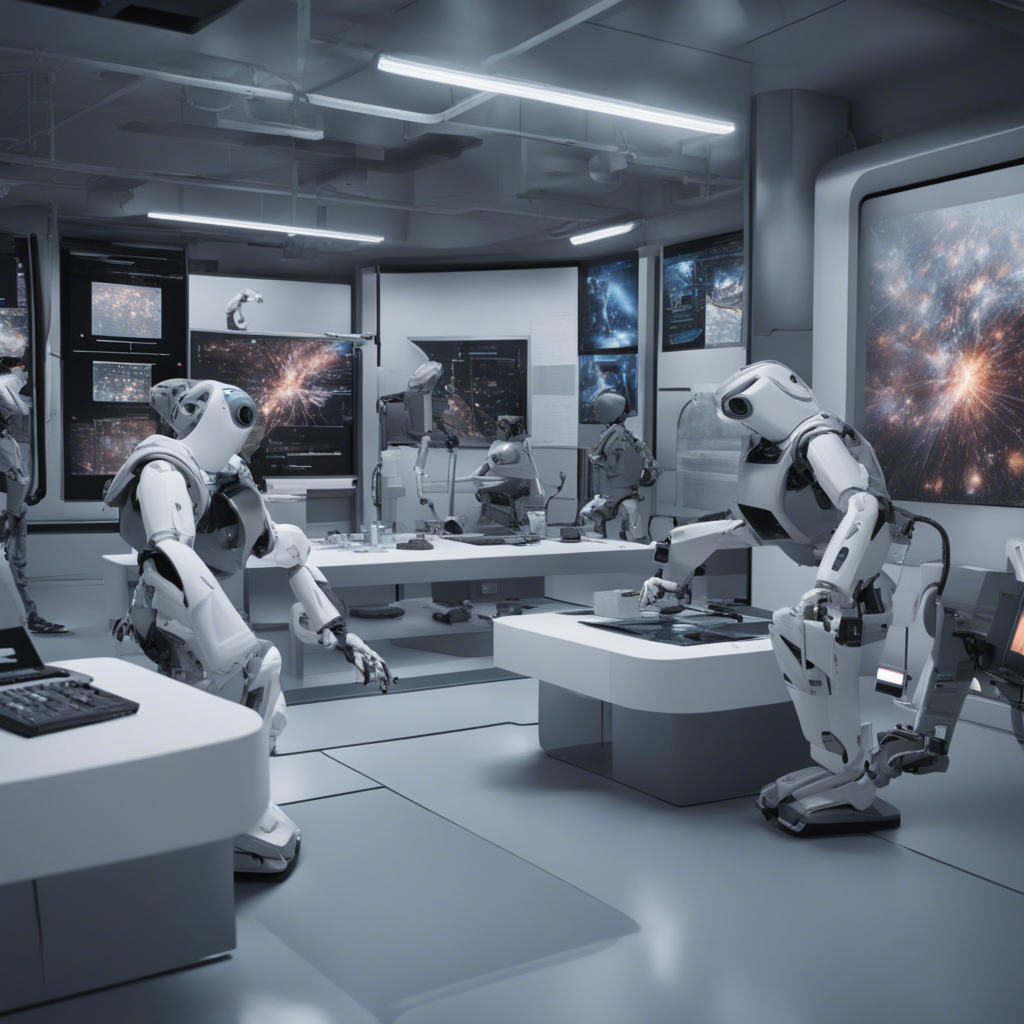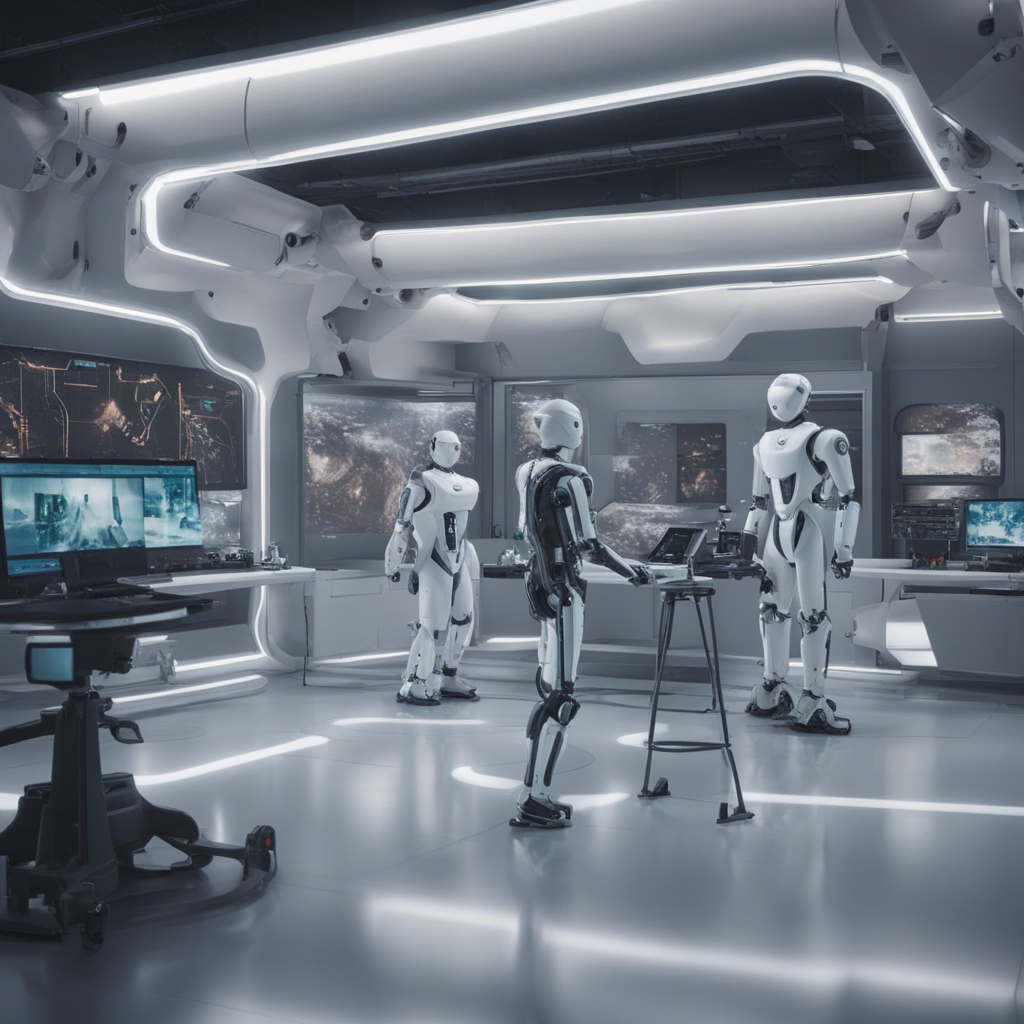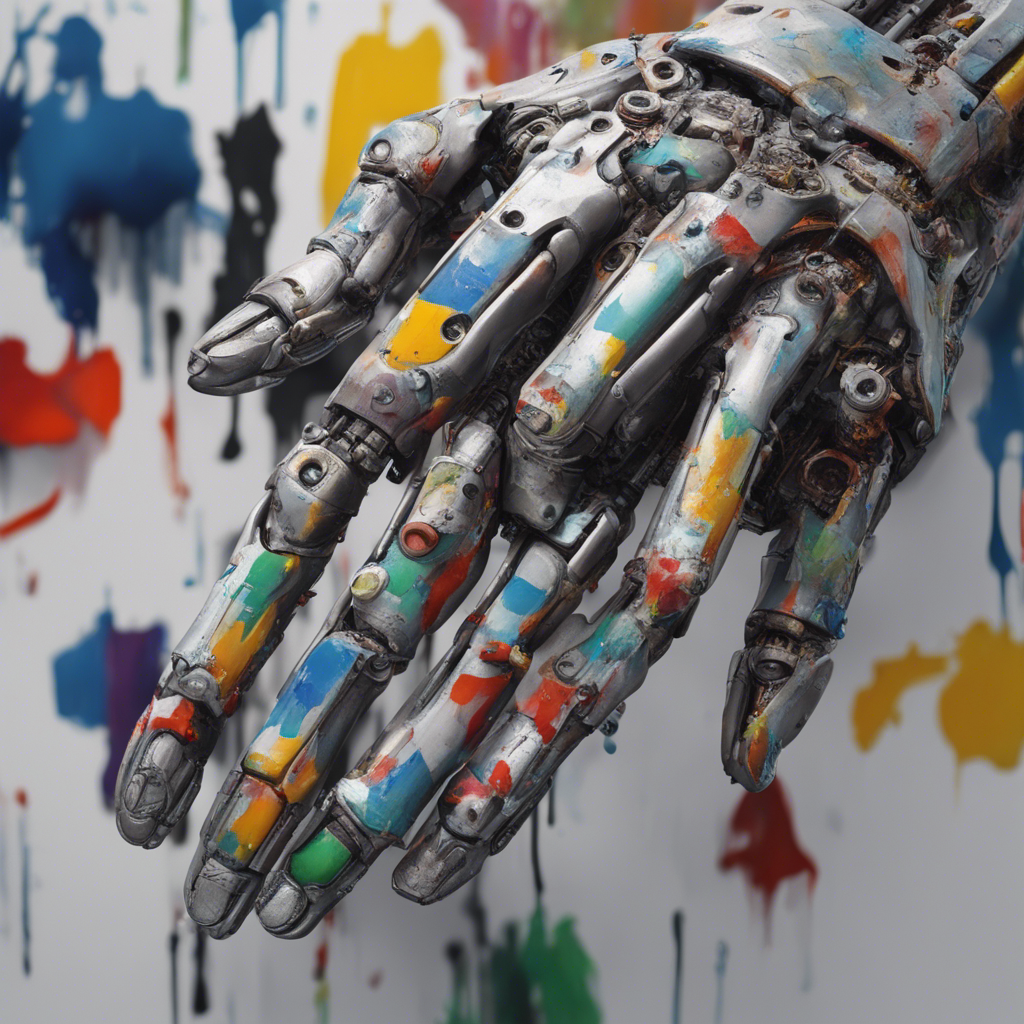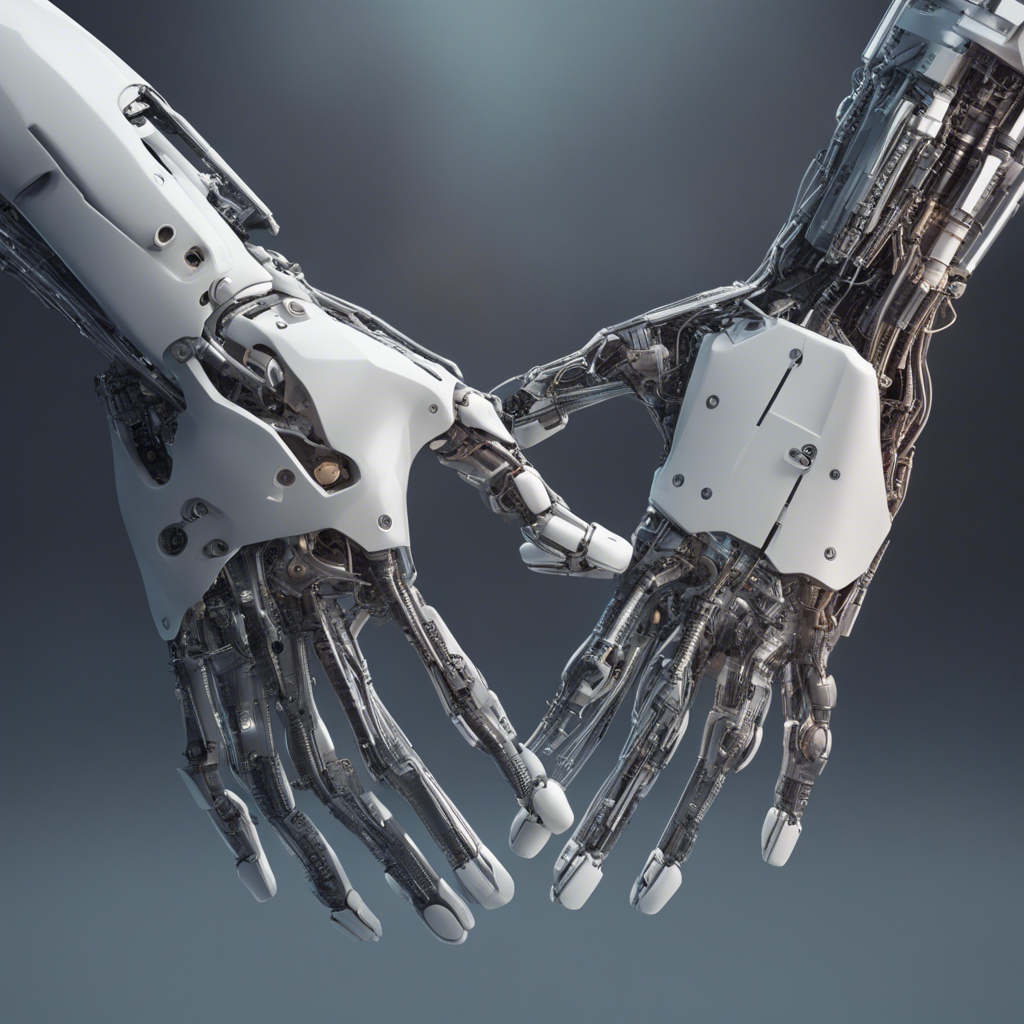
The Future of Human-AI Collaboration
In recent years, Artificial Intelligence (AI) has made significant strides in various industries, from healthcare and finance to entertainment and transportation. As AI continues to evolve and become increasingly capable, the question arises: what is the future of human-AI collaboration? In this blog post, we will explore the exciting possibilities and potential challenges that lie ahead as humans work alongside AI systems.
Introduction to Human-AI Collaboration
Human-AI collaboration goes beyond simply using AI tools and algorithms to augment human capabilities. It involves integrating AI systems into our everyday lives, enabling humans and machines to work together harmoniously. This collaboration holds tremendous promise for improving productivity, expanding knowledge, and unlocking new opportunities across many domains.
Enhancing Decision-Making with AI
One of the key areas where human-AI collaboration shines is decision-making. AI has the ability to process and analyze vast amounts of data quickly, providing valuable insights that can aid humans in making informed decisions. For example, in the healthcare sector, AI algorithms can assist doctors in diagnosing diseases by analyzing medical records, symptoms, and genetic information.
Human-AI collaboration can also be beneficial in complex business scenarios. AI can identify patterns and trends in data, enabling businesses to make data-driven decisions and gain a competitive edge. By leveraging AI, humans can save time on repetitive tasks, focus on creativity and critical thinking, and make better-informed choices.
Bridging the AI Skills Gap
As AI continues to advance, there is a growing demand for individuals with AI expertise. However, the scarcity of AI talent poses a significant challenge. Human-AI collaboration can help bridge this skills gap. AI systems can assist non-experts in utilizing AI tools and techniques, democratizing access to AI capabilities and empowering individuals with limited technical skills to contribute to AI-driven initiatives.
Platforms that offer no-code or low-code AI development environments are becoming increasingly popular. These platforms allow users to build AI models and applications without extensive coding knowledge. By enabling non-experts to leverage AI technologies, human-AI collaboration can unlock the potential of a wider range of individuals across industries.
Ethical Considerations
As AI becomes more integrated into our lives, it is crucial to address the ethical implications of human-AI collaboration. Questions surrounding data privacy, bias, and accountability need to be carefully addressed to ensure that AI systems are developed and used responsibly.
Transparency and fairness in AI algorithms are essential. Organizations should strive to eliminate biases in AI systems by using diverse and representative datasets during training. Additionally, establishing clear guidelines and regulations for collecting, storing, and sharing data can help protect individual privacy while enabling valuable collaborations.
The Future of Work
The future of work will undoubtedly be shaped by human-AI collaboration. While some fear that AI will replace human workers, research suggests that AI will primarily augment and complement human capabilities rather than replace them. Humans possess unique skills, such as creativity, empathy, and complex problem-solving, that AI systems struggle to replicate.
In this collaborative future, humans will focus on tasks that require emotional intelligence, intuition, and interpersonal interactions, while AI handles repetitive and data-driven tasks. By leveraging AI as a partner, humans can unlock their full potential and allocate their time and energy to high-value activities.
Challenges and Opportunities
Despite the promising prospects of human-AI collaboration, it is not without its challenges. Ensuring effective communication and understanding between humans and AI is essential. AI systems should be designed to provide clear explanations for their decisions and actions, enabling humans to trust and interact with them more effectively.
Another challenge lies in addressing the potential impact of AI on employment. As AI automates some jobs, industries will need to adapt and reskill their workforce to thrive in the changing landscape. This transition presents an opportunity for reimagining work, focusing on creativity, innovation, and lifelong learning.
Conclusion
The future of human-AI collaboration is a symbiotic relationship that combines the unique strengths of both humans and machines. By leveraging AI technologies, humans can enhance decision-making, bridge the AI skills gap, and unlock new opportunities in various domains. However, addressing ethical considerations and preparing for the changing nature of work are crucial aspects of ensuring a beneficial and inclusive collaboration.
AI is not a replacement for humans but a powerful tool that can amplify our capabilities and enable us to tackle increasingly complex challenges. As we embrace the potential benefits of human-AI collaboration, we must also remain vigilant about the ethical implications and continuously adapt to the evolving landscape. With responsible development and thoughtful integration, we can shape a future where humans and AI work together to bring about positive change.
References:
- Gu, Q., Kim, J., & Kim, S. (2020). The Challenge of Human–AI Collaboration. Journal of Management Information Systems, 37(1), 4-13.
- Brynjolfsson, E., & McAfee, A. (2017). The Second Machine Age: Work, Progress, and Prosperity in a Time of Brilliant Technologies. W. W. Norton & Company.
- Yoon, H. P. (2021). The emerging human–artificial intelligence symbiosis. Nature Machine Intelligence, 3(1), 10-15.
- Amodei, D., Olah, C., Steinhardt, J., Christiano, P., Schulman, J., & Mané, D. (2016). Concrete problems in AI safety. arXiv preprint arXiv:1606.06565.
- World Economic Forum. (2020). The Future of Jobs Report 2020. Retrieved from https://www.weforum.org/reports/the-future-of-jobs-report-2020



